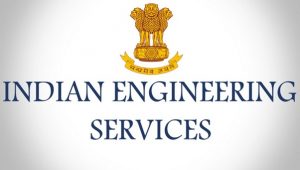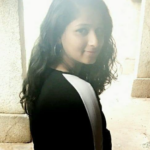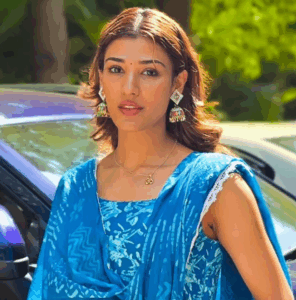Indian Engineering Services Examination Syllabus Exam Pattern
Indian Engineering Services is conducted under UPSC; a central agency of India authorised to conduct other civil services exam. IES caters to the technical and managerial functions for the Government of India. Candidates in large number appear to take this exam, competing for very scare vacancies. Hence, the competition is very high. IES officers are selected based on the recommendations made by the Union Public Service Commission (UPSC).
The Syllabus and the exam pattern plays a good job in cleaing the exam so one should preparrw well for the examination in order to crack the exam and for that one need Indian Engineering Services Examination Syllabus Exam Pattern and that we have updated on our website.
IES is definitely one of the toughest examinations due to less number of posts and having a very low selection ratio andits technical nature. Because of this IES officers garner huge respect and status in society.IES exam is conducted for recruitment of engineers in government services/sectors of railways, roadways, defence, energy and telecommunication. The recruitment of the selected candidates will be made to the services or posts under the following categories-
Category I- Civil Engineering.
Category II– Mechanical Engineering.
Category III– Electrical Engineering
Category IV– Electronics & Telecommunication Engineering
<<< Tips to Prepare for UPSC Interview >>>
Exam Pattern for ESE-Engineering Services Examination (ESE) is a four stage competitive exam (comprising six tests) is conducted by the UPSC for recruitment to the Indian Engineering Services.
One test is for General Aptitude which is a part of the assessment system apart from the engineering subject of the candidate. The entire technical subject is divided into four papers (Papers II, III, IV& V). There is a negative marking for wrong answers in the objective type papers. There is a three-day schedule of the written examination, which comprises of all the five written examinations.
First stage is conducted onthe first day; allocated for the General Aptitude (GA) paper. The duration is of 2 hours. This exam consists of General English and General Studies. Paper is of 200 marks.
Second stageis conducted onthe second day which comprises of Objective Technical Papers (II & III). One objective exam is conducted separatelyfor each paper and each for 2 hours in duration. Each paper is of 200 marks.
Third stageis conducted on the third day comprising of Conventional Technical Papers (IV & V). One subjective exam is conducted separately for each paper and each for 3 hours in duration. Each Paper is of 200 marks.
The answer sheets for Conventional Technical Papers of a candidate are evaluated only when he / she qualifies the objective examination i.e Stage 2.
Fourth and final stage is the interview. Candidates who qualify the written exam are called for the interview. Interview is allotted 200 marks. Officially it is called “Personality Test”. The objective is to assess the personal suitability of the candidate for a career in public service by a Board of competent and unbiased observers. The test judges the calibre of a candidate. The qualities that are judged are mental alertness, critical powers of assimilation, clear and logical exposition, balance of judgement, variety and depth of interest, ability for social cohesion and leadership, intellectual and moral integrity.
<<< TCS HR Interview Preparation Question >>>
Syllabus for Engineering Services Examination ESE-
- General Ability Test
- General English
- General Knowledge which include current affairs and issues of the world news.
- Civil Engineering – PAPER I
- Building Materials
- Solid Mechanics
- Structural Analysis
- Design Of Steel Structures
- Design Of Concrete And Masonry Structures
- Construction Practice, Planning And Management
Civil Engineering – PAPER II
- Fluid Mechanics
- Open Channel Flow
- Pipe Flow
- Hydraulic Machines And Hydropower
- Hydrology
- Water Resources Engineering
- Environmental Engineering
- Water Supply Engineering
- Waste Water Engineering
- Solid Waste Management
- Air And Noise Pollution And Ecology
- Soil Mechanics
- Foundation Engineering
- Surveying
- Transportation Engineering
- Mechanical Engineering – PAPER I
- Thermodynamics, Cycles and IC Engines
- Heat Transfer and Refrigeration and Airconditioning
- Fluid Mechanics
- Fluid Machinery and Steam Generators
Mechanical Engineering – PAPER I
- Theory Of Machines
- Machine Design
- Strength Of Materials
- Engineering Materials
- Production Engineering
- Industrial Engineering
- Elements Of Computation
- Electrical Engineering– PAPER I
- EM Theory
- Electrical Materials
- Electrical Circuits
- Measurements and Instrumentation
- Control Systems
Electrical Engineering – PAPER II
- Electrical Machines And Power Transformers
- Power Systems
- Analog And Digital Electronics And Circuits
- Microprocessors
- Communication Systems
- Power Electronics
- Electrical and Communication Engineering – PAPER I
- Materials and Components
- Physical Electronics, Electron Devices and ICs
- Signals and Systems
- Network theory
- Electromagnetic Theory
- Electronic Measurements and instrumentation
Electrical and Communication Engineering – PAPER II
- Analog Electronic Circuits
- Digital Electronic Circuits
- Control Systems
- Communication Systems
- Microwave Engineering
- Computer Engineering
Visit Current-Affairs.org for the current affairs, previous year question papers, online quiz for the competitive exams and many more.




